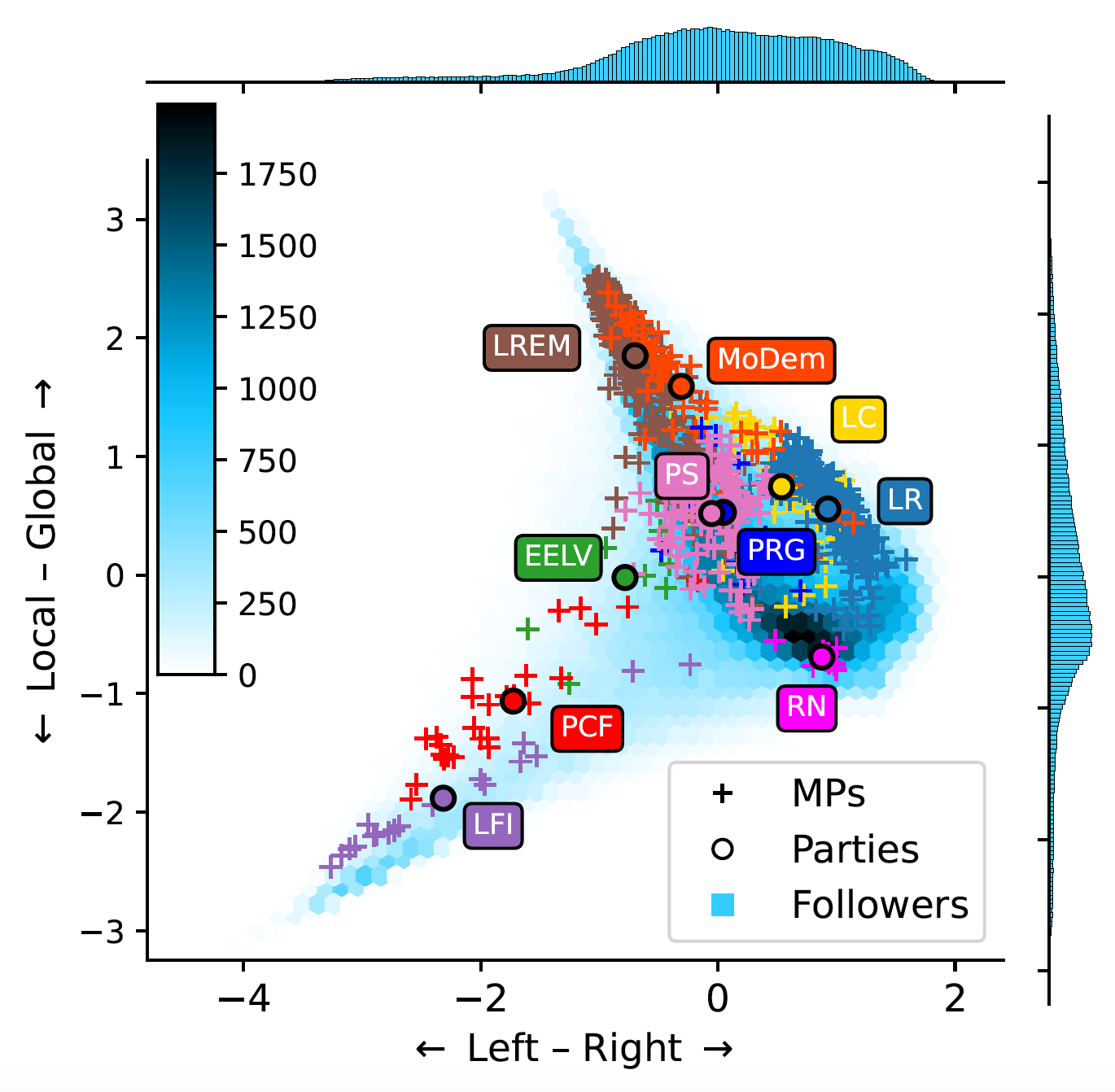██▓█▓░▓█▓▓█░░▒░░▓█▒ ░░░▒█▓░▓░▓░▓░▓█▓██░ ░░░░▒█████▓▓██▓████████████▓█▒░▒▒░░░░░░░░░░░ ░█████████████████████████████████████████████████▒ ░
██▓█▓░▓█▓▓█░░▒░░██▒░▓▓▓▓█▓░█░░░▓░▓█▓██░ ░░░░░▒▓▓██▓██▓█████████████▓██▓██░░░░░░░░░░░ ▒████▓▒▓███▓▓▓███████▓▒▒▒▓████████████████████████▒ ░
██▓█▓░▓████░▓█▓░▒█▒░█████▓░█▒ ▓▓░▓█▓██░░░░░░░░░░▓█▓█▓████▓▓▓██████████▓▓▓░░░░░░░░░░░ ▒████▓ ░███░ ▓█████▓█▒ ░░░░▓██████████████████████▒ ░
██▓█▓ ▒▓▓▓█░▒██▒░█▒░▓▓▓▓█▓ ▓▓▓▓▓ ▓█▓██░░░░░░░░░░▓█▓█▓███▓███▓███▓██▓█▓▓█▓░░░░░░░░░░░░▒████▓░░▓█▓░░▓██▒▒▓██▒░███▒░▓██▒▒▓██▓▓▓▒▓█▓▒▓█████▒ ░
██▓█▓░░░░░▓▒▓█▓▓░▓▓░░░░▒█▓░▓███▓░▓█▓██░░░░░░░░░░▓█▓█▓███▓███▓███▓█▓▓█▓▓██▓▓█▓░░▓░░░░░▒████▓░▒▒█░▒░▓█░░▒░▒█▒░█▓█▓ ▓█░░▒░▒█▓ ░▒░░░▒ ▓████▒ ░
██▓██████████▓▓█████████▓███▓▓▓████▓██░░░░░░░░░░░▒▓█▓███▓███▓███▓████████▓▓▓▒░░█▒░░░░▒████▓░▓░▓░▓░▓▓ ▓█▓ █▒░████░▒▓░▓█▓░▓▓ ▓█▒░██░▒████▒ ░
██▓█▓▓▓▓▓▓▓▓▓██▓▓▓▓▓▓▓▓▓█▓▓▓█▓█▓▓▓█▓██░░░░░░░░░░░░▓▓▓███▓▓█▓▓███████████▓▒▒▒░░░█▒░░░░▒████▓░█░░▒▓ ▓▒░█▓▓░▓▒░█▓██░▓▒░░░░░▓▓░██▒░██▒▒████▒ ░
██▓████████████████████████████████▓██░ ░░░░░░░░▒▒▓█▓██████████████████████▓▒░▒█▒░░░░▒████▓░█▒ ▓▓░▓▓░██▓░▓▒░███▓ ▓▒░█▓▓▓█▓░▓█▒░██▒▒████▒ ░
░ ██▓▓▓▓▓▓▓▓▓▓▓▓▓▓▓▓▓▓▓▓▓▓▓▓▓▓▓▓▓▓▓▓▓▓██ ░░░░░░░░▒▒▒▓▓▓▓█████████▓██████████▓▓████████░▒████▓░█▓▓█▓ ▓▓░▒▓░░█▒░▓▓▒ ▒█▓░▒▓▓▒█▓░▓█▒░██▒░████▒ ░
░████████████████████████████████████▒ ░░░░░░░░░▓█▓███▓███████▓████████████▒▒▓██▓▒▒▒░▒████▓▒████▓░▓█▓░░░▓█▓░░░░▓███▓░░░▒█▓▒██▓▒██▒▒████▒ ░
▒██████████████████████████████████▒ ░ ░░░░░░░░▒▒▓▓▓██▓▓██▓▓███████████▓▒█░░▒██▒░░░░▒████████████████▓██████████████▓█████████████████▒ ░
░░░░░░░░░░░░░░░░░░░░░░░░░░░░░░░░ ░ ░░░░░░░░▓▒▒▓▓▓█▓██▓▓▓████████████▓▓██████▒░░░░▒█████████████████████████████████████████████████▒ ░
░░ ░░ ░░░░░▒▓▓▓▓▓█▓▓█████▓▓▓████████▓████████▓▓▒░░▒█████████████████████████████████████████████████▒ ░
░░░░░░░░░░░▓▒▓▓▓▓█▓▓▓█▓▓████████████████████▓▒░░░██▓███████████████████████████████████████████▓██░
░░░░░░░░░░█▒▓▓▓▓█▓█▓▓▓█▓███████████████████░░░░░▓████████████████████████████████████████████████
░░░░░░░░░░█▒▓▓▓█▓█▓▓███▓██▓████████████████▒░░░░░▓█████████████████████████████████████████████▓
░░░░░░▒▒▒▒█▓▓▓▓▓█▓██▓▓▓▓██▓▓███▓███████████▒░░░░░░░░░░░░░░░░░ ░
░░░░░░░░▓███▓█▓▓▓▓█▓▓████████████████████████▓▒▒░░░░░░░░░░░░░░░░░░░░░░░░░░░░ ░░░ ░
░░░░░░░░░░░░▒█▒▒▓▓▓▓█▓▓████████████▓█████████████▒▓▓░░░░░░░░░░░░░░░░░░░░░░░░░░░░░░░ ░
░░░░░░░░░░░░░█▒▓█▓██▓██▓██▓███▓▓█▓█▓██████████▒▓█▒▓▓░░░░░░░░░░░░░░░░░░░░░░░░░░ ░ ░ ░░░░░░░░░░░░░░░░
░░░░░░░░░░░░▒█▒░░░▓█▓▓▓█▓▓▓███▓▓▓█▓█▓████████▓▒▒█▒█▓░░░░░░░░░░░░░░░░░░░░░░░░░░ ░ ░ ▒██████████████████░
░░░░░░░░░░░░░▓▒░░░▓█▓▒▓█▓▓▓██▓██▓█▓▓█▓█████▒▓▓▒▓█▓█▓▒░░░░░░░░░░░░░░░░░░░░░░░░░ ░ ░ ▒██▓▓▓▓▓▓▓▓▓▓▓▓▓▓▓▓██░
░░░░░░░░░░░░░░░░░░▓▓▓▓▓█▓▓▓███▓▓█▓▓██▓▒▒▒▓▓▒▓▓█████████▒░░░░░▒▒░░░░░░░░░░░░░░░ ░░ ░ ██▒▒▒▒▒▒▒▒▒▒▒▒▒▒▒▒▒▒█▓ ░
░░░░░░░░░░░░░░░░░░▒████▓▓██▓▓█▓▓▓█▓▓▓▓▓▓▒▓▓▒▒▒▒▓█▓█▓▒▒▒░░░░░░▒▒░░░░░░░░░░░░░░░░ ░░ ██▒▒▒▒▒▒▒▒▒▒▒▒▒▒▒▒▒▒██ ░
░░░░░░░░░░░░░░░░░▓▓▓▓██▓▓█▓▓█▓▓██▓▓█████████▓▓█▓█▓▓▓▓▒░░░░▒▒▒░░░░░░░░░░░░░░░░░░░░░░░ ██▒▒▒░▒▒▒▒▒▒░░░░░▒▒▒██ ░
░░░ ░░░░░░░░░░░░░░░░░░░▒▓██▓▓█▓▓▓███▓▓▓▓▓▓▓█▓▓▒▒▓█████▓▓▓▒░░░░▒▒▒░░░░▒░░░░░░░░░░░░░░░░░░ ██▒▒▒░▒▒▒▒▒░░▒▒▒░▒▒▒██ ░
░░ ░ ░░░░░░░░░░░░░░░░░░░▓▓██▓▓█▓█▓█▓▓█▓▒▓█▓▒█▓▒▒▒▒▒▓▒█▓▒▒▒▒░░▒▒▒▒▒▒▒▒▒▒░░░░░░░░░░░░░░░░░░ ██▒▒▒░▒▒▒▒▒ ▒▒▒▒▒▒▒▒██ ░
░░ ░░░░░░░░░░░░░░░░░░░▒▓██▓▓█▓█▓█▓▓█▓▒▓█▓▓█▓▓▓▓▒▒▒▒█▓▒▒▒▒░░▒▒▒▒▒▒▒░▒▒░░░░░░░░░░░░░░░░░░░░ ██▒▒▒░▒▒▒▒▒░▒▒▒▒▒▒▒▒██ ░
░░░░░░░░░░░░░░░░░░░░░░▒▒▓▓▓█▓▓▓▓███▓▓▓████████▓▒▓▓█▓▒▒▒▒▒▒▒▒▒▒▒▒▒▒▒▒▒▒░░░░░░▒░░░░░░░░░░░░░ ░░░ ██▒▒▒░▒▒▒▒▒░▒▒▒▒▒▒▒▒██ ░
░░░░░░░░░░░░░░░░░░░░░░░▒▓▓▓▓▓█▓█▓███▓██▓▓▓█▓▒▓█▓▓▓▓▒▒▒▒▒▒▒▒▒▒▒▒▓▓▒▒▒▒▒▒▒░░░░▒░▒▓░░░░░░░░░░ ░ ░ ██▒▒▒░▒▒▒▒▒ ▒▒▒▒▒▒▒▒██ ░
░░░░░░░░░░░░░░░░░░░░░░▒██▓▓▓▓███▓██▓██████▓▒▒▓█▒▓▓▒▒▒▒▒▒▒▒▒░▒▒▒▓▓▒▒▒▒▓▓░░░░░▒░▓█░▒░░░ ░░░ ░ ░ ██▒▒▒░▒▒▒▒▒░░▒▒▒▒▒▒▒██ ░
░░░░░░░░░░░░░░░░░░░░░░▒▓▓████▓██▓▓█▓▓██▓▓█▓▓▓██▓█▓▓▓▓▓█▒▒▒▒░▒▒▒▓▓▒▒▒▒█▓▒▒▒░▒▒░▓▓▒█░░░░░░░░ ░ ░ ██▒▒▒░░░░░▒▒░░░░░▒▒▒██ ░
░░░░░░░░░░░░░░░░░░░░░░░▒▓█▓█▓█▓█▓███▓██▓▓████████████▓█▒▒▒▒░▒▒▒▓▓▒▒▒▒█▓▒▒▒▒▒▒▒▓▓▓▓░░ ▓▓ ░░ ░ ░ ██▒▒▒▒▒▒▒▒▒▒▒▒▒▒▒▒▒▒██ ░
░░░░░░░░░░░░░░░░░░░░░▒▒▒▓█▓█▓█▓▓▓████████▓▓███████▓▒▒▓█▒▒▒▒▓█████▓▓█▓█▓▒▒▒▒██▓█████░ ▓▓ ░░░ ░░ ██▒▒▒▒▒▒▒▒▒▒▒▒▒▒▒▒▒▒██ ░
░░░░░░░░░░░░░░░░░░░▒██▓▓▓███▓█▓██▓█▓██▓▒▓▓████▓██▒▒▒▒▓▒▒▒▒▒▓▓▓▓▓▓████████▓▓▓▓███▓█▓▓▓▓ ░░ ░░░░ ██▒▒▒▒▒▒▒▒▒▒▒▒▒▒▒▒▒▒██ ░
░░░ ░░ ░░░░░░░░░░░░░░░░░░░▓▓▓▓█▓█▓███▓▓▓▓▓█▓▓▓▓█▓▓█████▓▒▒▒▒▒▒▒▒▒▒▒░▓▓▒▓▓▓█▓▓▓▓▒▒▒▓█▓▓▓▓███▓▒▒▒░░░░░░░ ██▒▒▒▒▒▒▒▒▒▒▒▒▒▒▒▒▒▒█▓ ░
░░ ░░░ ░░░░░░░░░░░░░░░░░░░░░░▒████████▓▓▓▓▓▓█▓▓██▓█▓██▓▓▓▒▒▒▓▓▒▒▒▒▒▒▒▒▓▓▒▒▓▓█▓░▒▒▒▓▓▒▓▓▒█▓▓▓▓████▒░░░░░░ ▓█▓▒▒▒▒▒▒▒▒▒▒▒▒▒▒▒▓██▒
░░░░ ░ ░ ░░░░░░░░░░░░░░░░░░░▒▒▒▓█▓█▓▓█▓▓▓▓█▓█▓▓▓▓█▓▓█▓▒▒▒▒▒▒▒▒▒▒▒▒▒▒▒▒▓▓▒▒▓▓▓▓░░░▒▓█░▒█▓█▒▓██▓▒█▓█▓ ░░░░░ ▓██████████████████▓
░ ░░░░ ░░░░░░░░░░░░░░░░░░░░░░░▒█▓█▒▓▓▓▓▓▓█▓▓▓▓▓▓▓█▓█▓▓▓▓▒▒▒▓▓▒▒▒▒▒▒▒▒▒▒▒░▒▓▓▓░░░▒▓█░░▓▓█▒▒██▓▒█▓█▓░░░░░░░ ░▒▒▒▒▒▒▒▒▒▒▒▒▒▒▒▒░
░░░░░░░░░░░░░░░░░░░░░░░░▓▒░░░▒▒▓█▒▒▓▓▓▓▓▓██████▓█████▓▒▒▒▒▓█▒▒▒▒▒▒▒▒▒▒▒░▓▓▓▓░░▒▒▓█▒▒▓█▓▓▓▓▓▓▓▓▓█▓ ░░░░░░░░
░░░░░░░░░░░░░░░░░░░░░░░░░█▒░░░▒▒▓█▒▒▓▓▓▓▓▓▓▓▓▓▓▓▓▓▓▓▓▓▓█▓▒▒▓▓▒▒▒▒▒▒▒▒▒▓▓▓▓▓▓█▒▓████████▓▓▓▓▓▓▓▓▓█▓▒▒▒░░░░░░░░░░░░░░░░░░░░░░
░░░░░░░░░░░░░░░░░░░░░░░░░█▒░░░▓▓▒▒▒▒▓▓▓█████████████████▒▒▒▓▓▒▒▒▒▒▒▒▓▓▓▓████████▓▓█▓▓██▓▓▓▓▓▓▓▓▓▓████░░░░░░░░░░░░
░░░░░░░░░░░░░░░░░░░░░░▒▒▒█▓▒▒▒▓▓▒▒▒▒▓████████████████████▒▒▒▒▒▒▒▒▒▒▒▓▓▒▓▓▓▓▓█▓▓▓▓▓█▓▓▓▓▓▓▓▓▓▓▓▓▓▓▓▓█▓░░░░░░░░░░░░
░░░░░░░░░░░░░░░░░░░░░▓███▓███▓▓▓▒▒▒▒▓██▒▒▒▒▒▒▒▒▒▒▒▒▒▒▒▒▒██▒▓▓▒▒▒▒▒▒▒▒▒▒▓░▓▓▓▓░░░▒██▒▓▓█▓▓▓▓▓▓▓▓▓▓▓▓▓▒░░░░░░░░░░░░
░░░░░░░░░░░░░░░░░░░░░░░░▒█▓░░░▓▓▒▒▒▒██▒▒▒▒▒▒▒▒▒▒▒▒▒▒▒▒▒▒▓█▒▓▓▒▒▒▒▒▒▒▓▓▒▓░▓▓▓▓░░░▒██▓▓▓▓▓▓▓▓▓▓▓▓▓▓█▓█▒░░░░░░░░░░░░░
░░░░░░░░░░░░░░░░░░░░░░░░▓▓▓▓▓▓▓▓▓▓▒▓█▒▒▒▒▒▒▒▒▒▒▒▒░░▒▒▒▒▓█▒▓▒▒▒▒▒▒▒▒▓█▓██▓▓▓█▓▓▓▓▓▓▓▓▓▓▓▓▓▓▓▓▓▓▓▓▓█▓█▓░░▓▓░░░░░░░░░░ ░░░
░░ ░░░░░░░░░░░░░░░░░░░░░░░█▓▒▒▒▓▓▒▓▓▒▓█▒▒▒░ ░░░▒▒░░░░░▒▒▒▓█▒▒▒▒▒▒▒▒▒▓▓████▓▓▓▒▒▒▓▓█▓▓▓▓▓▓▓▓▓▓▓▓▓▓▓▓▓▓█▓▓▓█▓░░░░░░░░░░░░░░░░
░░░░░░░░░░░░░░░░░░░░░░░░░░░▓▒░░░▓▓░▒▒▒▓█▒▒▒░░▒▒░░▒ ▒▒▒▒▒▒▒▓█▒▒▒▒▒▒▒▒▒▒█▓▓▓▒▒▒▒▒▒▒▒▒▓▓▓███▓▓▓▓▓▓▓▓▓▓▓▓▓▓▓█▓█▓ ░░░░░░░░░░░░░░░
░░ ░ ░░░░░░░░░░░░░░░░░░░░░░░░░░░░▓▓░▒▒▒▓█▒▒▒░░▒▒░░▒ ▒▒▒▒▒▒▒▓█▒▒▒▒▒▒▒▒▒▒▒▒▒▓▒▒▒▒▒▓▓▒▓▓█▓▓▓▓▓▓▓▓▓▓▓▓▓▓▓▓▓▓█▓▓█▓▒▒▒▓░░░░░░░░░░░░░
░░░░ ░░░░░░░░░░░░░░░░░░░░░░░░░░░░░▓▓░░▒▒▓█▒▒▒░░░░ ░▒░ ░░▒▒▒▒▓█▒▒▒▒▒▒▒▒▒▒▒▒▓▓▒▒▒▒▒▒▒▒▓▓▓▓████▓█▓▓▓▓▓▓▓▓▓▓▓▓▓▓▓████▓░░░░░░░░░░░░░░░ ░
░░░░░░░░░░░░░░░░░░░░░░░░░░░░░░░░░░░░▒▒░░░░▓█▒▒▒░ ░░░▒▒▒▒░░ ▒▒▒▓█▒▒▒▒▒▒▒▒▒▒▒▒▓▓▓█▒▒▒▒▒▒▒▒███████▓▓▓▓▓▓▓▓▓▓▓▓▓▓▓▓▓▓▓▓▒░░░░░░░░░░░░░ ░
░░░░░░░░░░░░░░░░░░░░░░░░░░░░░░░░░░░░░░░░░▒▓█▒▒▒░░▒▒▒▒▒▒▒▒▒░░▒▒▓█▒▒▒▒▒▒▒▒▒▒▒▒▒▒▓█▒▒▒▒▒▒▒█████████▓▓█▓▓▓▓▓▓▓▓▓▓▓█▓▓▓▒▒▒▓░░░░░░░░░░░▒█████████████████▒
░░░░░░░░░░░░░░░░░░░░░░░░░░░░░░░░░░░░░░░░░▒▓█▒▒▒░░▒▒▒▒▒░▒▒░ ░▒▒▓█▓▒▒▒▒▒▒▒▒▒▒▒▒▒▓▓▒▒▓▒▒▒▓██▓▒▒▒▓███▓▓▓▓▓▓▓▓▓▓▓▓▓▓▓▓▓▒▒▓█▓▒░░░░░░░ ▓███████████████████▓
░░░░░░░░░░░░░░░░░░░░░░░░░░░░░░░░░░░░▒▒░░░▒▓█▒▒▒░░▒▒▒▒▒░░░░░▒▒▒▓█▓▒▒▒▒▒▒▒▒▒▒▒▒▒▒▓▒▒▒▒▒▒███▒▒▒▒▒███▓██▓▓▓▓▓▓▓▓▓▓▓▓▓▓▓▒▓▓▒░░░░░░░░░██▓▓▓▓▓▓▓▓▓▓▓▓▓▓▓▓▓██░
░░░░░░░░░░░░░░░░░░░░░░░░░░░░░░░░░░░░▒▒░░░▒▓█▒▒▒▒▒▒▒▒▒▒▒▒▒▒▒▒▒▒▓█▒▒▒▒▒▒▒▒▒▒▒▒▓▒▓▓▓▓▒▒▒▒██▓▒▒▒▒▒▓██▓██▓▓▓▓▓▓▓▓▓▓▓▓▓▓▓▓▓█▒░░░░░░░░░██▓███████████████▓██▒
░░░░░░░░░░░░░░░░░░░░░░░░░░░▒█░░░░░░░░▒░░░░▓█▒▒▒▒▒▒▒▒▒▒▒▒▒▒▒▒▒▒▓█▒▒▓▒▒▒▒▒▒▒▒▒▓▒▓█▓▒▒▒▒▒██▓▒▒▒▒▒▓██▓▓▓▓▓▓▓▓▓▓▓▓▓▓▓▓▓▓▓▓▓▓▓▓▓░░░░░▒██▓█▓▒▓▓▓█▓▒▒▒▒▓█▓▓██▒ ░
░░░░░░░░░░░░░░░░░░░░░░░░░▒█░░░░░░░▒▒▒▒▒░▓█▒▒▒▒▒▒▒▒▒▒▒▒▒▒▒▒▒▒▓█▒▒▓█▓▒▒▒▒▒▒▒▒▒▒▓▒▒▒▒▒▒███▒▒▒▒▒███▓█▓▓▓▓▓▓▓██████▓▓▓▓▓▓█▓▓▒░░░░░▒██▓█▒░▓▓▓█▓ ░▒░░▓█▓██▒
░░░░░░░░░░░░░░░░░░░░░░░░▒█░░░░▒▒▒▒▒▒▒▒▒▒█▓▒▒▒▒▒▒▒▒▒▒▒▒▒▒▒▒▒██▒▒▓▓▓▒▒▒▒▒▒▒▒▒▒▓▓▒▒▒▒▒▓███▓▒▓███▓▓█▓▓▓▓▓▓█▓▓▓▓▓▓██▓▓▓▓█▓▓▒░░░░░▒██▓█▓░▓▓▓█▓░▓█▓ ▓█▓██▒
░░░░░░░░░░░░░░░░░░░░░▒▒▒▓█▒▒▒▒░░░░▒░▒▒▒░███▓▓▓▓▓▓▓▓▓▓▓▓▓▓▓██▓▒▓▓▒▒▒▒▒▒▒▒▒▒▒▒▒▒▒▒▒▒▒▒█████████▓▓▓▓▓▓▓▓█▓██████▓▓▓▓▓▓▓██▓░░░░░▒██▓█▓░▓▓▓█▓░▓█▓ ▓█▓██▒
░░░░░░░░░░░░░░░░░░░░░████▓██▓▓░░░░▒░▓▓▓▓███████████████████▓▒▒▓▓▓██▓▒▒▒▒▒▒▒▒▒▒▒▒▒▒▒▒▓▓██████▓▓▓▓▓▓▓▓█▓████████▓█▓▓▓▓▓▓██░░░░▒██▓█▓░▓▓▓█▓░░░ ▒█▓▓██▒
░░░░░░░░░░░░░░░░░░░░░░░░░░▒█░░▒░░░░░▒░▓█████▓▒▒▓▒▒▒▒▒▒▒▒▒▒▒▒▒██████████▓▒▒▒▒▒▒▒▒▒▒▒▒▒▒▓▓▒▓█▓▓▓▓▓▓▓▓▓▓█▓██████████▓▓▓▓▓▓█▓▒░░░░▒██▓█▓░▓▓▓█▓░▒▓░▒█▓▓██▒
░░░░░░░░░░░░░░░░░░░░░░░░░░░▒█░░▒░░░░░▒░░▒▒▒██▓▒▒▓▒▒▓▒▒▒▒▒▒▒▒▒████████████▓▒▒▒▒▒▒▒▒▒▒▒▒▒▓▓▒▓▓▒▓▓▓▒▒▒▓▓▒▓▓███▓▓▓▓████▓▓▓▓▓█▓▒░░░░▒██▓█▓░████▓░▓█▓ ▓█▓██▒
░░░░░░░░░░░░░░░░░░░░░░░░░░░▒█░░▒░░░░░░░░▒▒▒██▒▒▒▓▒▒▓▓▒▒▒▓▒▒▒███▒▒▒▓███████▒▒▒▒▒▒▒▒▒▒▒▒▒▒▒▒▒▒▒▓▓▓▒▒▒▒▒▒▒▓██▓▓███▓███▓▓▓▓▓▓██░░░░▒██▓█▒ ▒▒▒▒▓ ▓██▒░█▓██▒
░░░░░░░░░░░░░░░░░░░░░░░░░░░░▒▒▒▒▒▒▒▒░░░░▒▒▒██▒▒▒▓▒▒▒▒▒▒▒▒▒▒▓██▒▒▒▒▒▓██████▓▒▒▒▒▒▒▒▒▒▒▒▒▒▒▒▒▒▒▓▓▓▒▒▒▒▓▓▓███▓█▓▓█▓███▓██▓▓▓▓▓▓▓░░▒██▓█▓▒▒▒▒▒▓▒▓██▓▒▓▓██▒
░░░░░░░░░░░░░░░░░░░░░░░░░░░░▒▒▒▒▒▒▒▒░▒▒▒▒▒▒▓▓▒▒▒▒▒▒▒▒▒▒▒▒▒▒▓██▒▒▒▒▒▒██████▓▒▒▒▒▒▒▒▒▒▒▒▒▒▒▒▒▒▒▒▒▒▒▒▒▒▓▓▓▓███▓██▓▓████████▓▓▓▓▓░░▒██▓▓██████▓██▓▓███▓██▒
░░░░░░░░░░░░░░░░░░░░░░░░░░░░░░░▒░░░░░▒▒▒▒▒▒▒▒▒▒▒▒▒▒▒▒▒▒▒▒▒▒▓█▓▒▒▒▒▒▒██████▓▒▒▒▒▒▒▒▒▒▒▒▒▒▒▒▒▒▒▒▒▒▒▒▒▒▓▓▒▒███▓▓▓▓███▓██▓██▓▓▒░▒▒░▒██▓█▓▓▓▓▓▓▓▓▓▓▓▓▓▓▓██▒ ░
░░░░░░░░░░░░░░░░░░░░░░░░░░▒▓░░░▒░░░░░░░░▒▒░▒▒▒▒▒▒▒▒▒▒▒▒▒▒▒▒▓██▒▒▒▒▒▓██████▒▒▒▒▒▒▒▒▒▒▒▒▒▒▒▒▒▒▒▒▒▒▒▒▒▒▓▓▒▒▓█████████▓▓▓▓██▓▓█▒▓▓░▒██▓███████████████▓██▒
░ ░░░░░░░░░░░░░░░░░░░░░░░░▓▓░░░▒░░░░░░░░▒▒░░▓█▒▒▒▒▒▒▒▒▒▓▓▒▓▒███▒▒▒▓███████▒▒▒▒▒▒▒▒▒▒▒▒▒▒▒▒▒▒▒▒▒▒▓▓▓▓▓▓██▓██████████▓█████▓▓▓█▓░░██▓▓▓▓▓▓▓▓▓▓▓▓▓▓▓▓▓██░
░░░ ░░░░░░░░░░░░░░░░░░░░░░░░▓▓░░░░░░░░░░░░▒▒░░██▒▒▒▒▒▓▓▓▒▓▓▒▓▒▓████████████▒▒▒▒▒▒▒▒▒▒▒▒▒▒▒▒▒▒▒▒▒▒▒▓██████▓█▓▓████▓▓███████████▓▓░░▒███████████████████▒ ░
░ ░ ░░░░░░░░░░░░░░░░░░░░░░░░▓▓░░░░░░░░░░░░▒▒░░▓▓▒▒▒▒▒▒▒▒▒▒▒▒▒▒▒▓█████████▓▓▒▒▒▒▒▒▒▒▒▒▒▓▓▒▒▒▒▒▒▒▒▒▒▒▒▒▒▓▓▒▒▓▓▓▓▓▓▓▓▓▓█▓▓██████▓▓▓▓▓▓▒▓███▓▓▓▓▓▓▓▓▓▓▓▓▓░ ░
░░░░░░░░░░░░░░░░░░░░░░░░░░░░░░▒█▓▓███▓█▒░░░░░░░░░▒▒▒▒▒▒▒▒▒▒▒▒▒▒▒▓▓▓▓▒▒▒▒▓▓▒▒▒▓▒▒▓▒▒▒▓█████████████████████████▓▒▒▓▓▒▓██▓▓▓▓▓▓▓██▓▓▓▓▓█▓▓█▒░░░░░░░░░░░░ ░
░ ░░░░░░░░░░░░░░░░▒▒▒▓▓▒▒▓▒░░░░░░░░▒███▒███▒▒▒▒▒▒▒▓▓▓▓▓▒▓▓▒▒▓▓▒▒▒▒▒▒▒▒█████████████████████████████▒▓▓▒▓█▓▓▓▓▓█▓███▓▓▓▓▓▓▓▓▓▒▒░░▒▒▒░░░░░░░░░░░░░
░░░▒▒▒▒▒▒▒▒▒▒▒▒▒▒▒▒▒▒▒▒▒▒▒▒▒▒░░░░░░▓▓░░░░░░░░░░░░▒▓▓▓▒█▓▓▒▒▒▒▒▒▒▓▓█▓▓▒▓▓▒▒▓▒▒▒▒▒▒▒▒▓█████████████████████████████▓▒▓▒▓█▓█▓▓▓▓▓▓██▓▓▓▓▓▓▓█▓▒▒░░░░░░░░░░░░░░░░░░
░ ▓███████████████████████████████░░▒░▓▓░░░░░░░░░░░░░░░░▒▓▒▒▒▒▒▒▒▒▒▓▓▓▓▓▒▓▓▒▒▓▒▓▓▒▒▒▒▒███████████████████████████████▒▒▒▓▓▓▓▓▓▓▓▓▓█▓▓▓▓▓▓▓▓█▓▒▒▒▒░░░░░░░░░░░░░░░░
░ ▒████████████████████████████████▓▒█░▒▓░░░░░░░░░░░░▒▒▒▒▒▒▒▒▒▒▒▒▒▒▒▒▒▒▓▓██▒▒▒▒▓▓█▓▒▒▒▒█████▓▓▓▓██▓▓▓▓▓█████▓▒▒▓██████▒▒▒▒▒▒▓▓▓▓▓▓▓▓▓▓▓▓▓▓▓▓▓▓███▓░░░░░░░░░░░░░░░░
░ ██████████████████████████████████▓█░░░░░░░░░░░░░░░▒▒▒▒▒▒▒▒▒▒▒▒▒▒▒▓▓▓▓▓██▓▒█▒▓▓▓▓▒▒▒▒█████░░░░░█▓ ░░░▒██▓░░░░░▒█████▒▒▒▒▓▓▓▓▓▓▓▓▓▓▓▓▓▓▓▓▓▓▓▓▓▓▒▒░░░░░░░░░░░░░░░░
██████████████████████████████████▓█░░░░░░░░░░░░░░░░░▒▒▒▒▒▒▒▒▒▒▒▒▒▓▓█▓▒▓▓▒▒▓▒▒▓▒▒▒▒▒▒█████░▒█▓░▒▓░██▒░██░░███▓▓█████▓▒▒▒▓▓▓▓▓▓▓▓▓▓▓▓▓▓▓▓▓▓█▓▓▓░░░░░░░░░░░░░░░░░░
█████░░░░░██░░░░░█▓░███░████▓░██████▓▓▓▒░░░░░░░░░░░░░░▒▒▒▒▒▒▒▒▒▒▒▒▓▓▓▒▒▒▒▒▒▒▒▒▒▒▒▒▒▒▒█████░▒██░▒▓░██▓ █▓ ▓██████████▓▓▓▓██▓▓▓▓▓▓▓▓▓▓▓▓▓▓▓▓█▓▓▓▒▒░░░▒▒░░░░░░░░░░░░░
█████░▓█████░█████▓░███░▒███░▒█████████▓░░░░░░░░░░░░▒▓▒▒▒▒▒▒▒▒▒▒▒▒▒▓▓▒▒▓▓▒▒▒▒▒▒▒▒▒▒▒▒█████░░▓▒ ▓▓ ▒▒░▒█▓░▓█▓▒▒▒█████▓▓▓▓▓▓▓▓▓▓▓▓▓▓▓▓▓▓▓▓▓▓█▓▓▓▒▒▒▒▒▒▒▓▒░░░░░░░░░░░░
█████░▓█████░█████▓░███▓░███░█████▓█░░░░░░░░░░░░░░░░▓█▓▓█▒▒▓▒▒▒▒▒▒▒▒▓▒▒▓▓▒▒▓▒▓█▓▓▓▒▒▒█████░░▒▒▓█▓░▒▒░▓█▓░▓█▓▒░░█████▓▒▓▓▓▓█▓▓▓▓▓▓▓▓▓▓▓▓▓▓███▓▓▓▓█▓▒▒▒▓▓░░░░░░░░░░░░
█████░░░░░██░░░░▒█▓░████░▓█▒░█████▓█░░░░░░░░░░░░░░░░░░░▒█▒▒▓▒▒▒▒▒▒▒▒▒▒▒▒▒▒▒▓▒▓█▓█▓▒▒▓█████░▒████▓░██▒░██░▒███▓░█████▓▓█▓███▓█▓▓▓▓▓▓▓▓▓▓▓▓▓▓▓▓██▓▓▒▒▒▒▓▓░░░░░░░░░░░░
█████░▓█▓▓██░▓▓▓▓█▓░████▒░█░▓█████▓█░░░░░░░░░░░░░░░░░░░▒█▒▒▒▒▒▒▒▒▒▒▒▒▒▒▓▓▓▒▓▒▓█▓█▓▒▒▓█████░▒████▓ ▓██░▒█▒ ▓▓▓▒░█████▓█▓▓▓▓▓▓▓▓█▓▓▓██▓▓▓▓█▓▒▒▓██▓▒▒▒▒▒▓▓▒▒░░░░░░░░░░░░
█████░██████░█████▓░█████░▓░██████▒▒░░░░░░░░░░░░░░░░░░░▒█▒▒█▓▒▒▒▒▒▒▒▒▒▒▓███▓▒▓▓▓▓▓▓▓▓█████▒▓████▓░███▓░██▒░░░░▓█████▓▓▒▒▒▒▓▓▒▓▓▓▓▓▓▓▓▓▓▓█▓▓▓▓██▓▒▓████████▒░░░░░░░░░░░
█████░▓█████ █████▓░█████░ ▒██████░░░░░░░░░░░░░░░░░░░▒░▓█▓▓█▓▒▒▒▒▒▒▒▒▒▒▓█████▓▒▒▓▓▓▓▓██████████████████████▓████████▓▓▓▓▓▒▓▓▓▓▓▓██▓▓█▓▓▓▓▓██▓▓█▓▓▓▓▓▒▓▓▒▓▒░░░░░░░░░░░░
█████░░░░░██░░░░░██░░░░▒█▓ ▓██████▒░░░░░▒▓██▒▒▒░░▓▓░░▒░████▓█▓▒▒▒▒▒▒▒▒▒▓███▓▓▓▒▒▓▒▒▒▒███████████████████████████████▓▓▓▓▓▒▓▓▓▓▓▓▓▓██▓▓▓▓▓▓▓▓▓▓▓███▓▒▒▓▓▒▒▒░░░░░░░░░░░░


